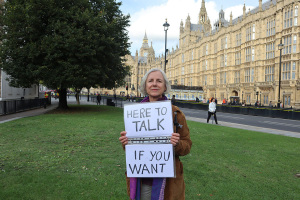Economist: GOP 'Fiscal Cliff' Plan Is Possible, but Politically Difficult
The Republican plan to raise revenue through tax reform, rather than increasing tax rates, is possible, but would be difficult to pass because the tax preferences that would need to be eliminated are widely favored among voters, explained Diane Lim, chief economist for the Concord Coalition, in a Thursday interview with The Christian Post.
One of the main sticking points in the negotiations between the White House and House Republicans over averting the "fiscal cliff" is the source of new revenue. President Barack Obama and Democrats want the tax rates to go up for the top two tax brackets, or those making more than $250,000 per year. Republicans want to eliminate tax preferences, such as deductions, exclusions and credits. Democrats have argued that there is not enough revenue that could be raised from eliminating tax preferences, so tax rates must increase as well.
Together, all of the tax preferences from both the corporate and income tax code add up to a little over $1 trillion per year, explained Lim. So, there is more than enough revenue that could be raised from tax reform to meet the goal of reducing deficits by $4 trillion over 10 years. The difficulty, though, is that most of that revenue comes from tax preferences, sometimes called tax expenditures, enjoyed by many, thus members of Congress would be reluctant to get rid of them.
"When you look at where the biggest tax expenditures are, this is what is going to be the downfall of this great idea, most tax expenditures are not things that are appropriately labeled 'loopholes,'" Lim said.
Most, 90 percent, of the revenue that could be raised from eliminating tax preferences are in income, not corporate, tax preferences. Plus, most of the value of those preferences come from the exclusion of employer provided health insurance, and deductions for charitable contributions, mortgage interest, and state and local taxes.
Eliminating those deductions would be as difficult as reducing Social Security benefits, Lim explained, because, like Social Security, many people enjoy them. Indeed, Lim added, while most think of "entitlements" as forms of government spending, like Social Security, Medicaid or Medicare, these tax preferences are viewed much like entitlement benefits, because so many expect to receive them.
Lim encourages lawmakers, though, to consider whether these tax preferences are worth the cost. The home mortgage interest deduction, for instance, is widely panned by economists because it does not accomplish its goal and distorts the housing market.
Ostensibly, the purpose of the home mortgage interest deduction is to encourage home ownership. The tax preference does little, though, to encourage home buying among those who would not otherwise buy a home, Lim explained. Rather, it encourages larger debt and the purchase of larger, more expensive homes. It also does not save homeowners money because the deduction is built into the price of the home. Because of this, the mortgage interest deduction contributed to the housing bubble that led to the Great Recession that began in 2008.
Even though the mortgage interest deduction is widely condemned by both liberal and conservative economists, getting rid of it would be difficult because so many people expect it and have budgeted for it.
While tax reform would be difficult, though, one reason it might be possible is that it accomplishes both liberal and conservative goals, and thus allows for bipartisan compromise.
For conservatives, getting rid of tax preferences, or "broadening the base," can raise revenue without the market distorting effects of increasing tax rates. Indeed, tax preferences themselves are market distorting so getting rid of them allows less market distortions in the economy. For liberals, getting rid of tax preferences tends to lead to a more progressive tax code because most of the benefits usually go to the wealthy.
Lim joined Concord Coalition, a nonpartisan advocacy organization that encourages fiscal responsibility in the federal budget, in 2008. Before that she served as the chief economist for the Democrats on the House Budget Committee. Her blog is EconomistMom.com.





























